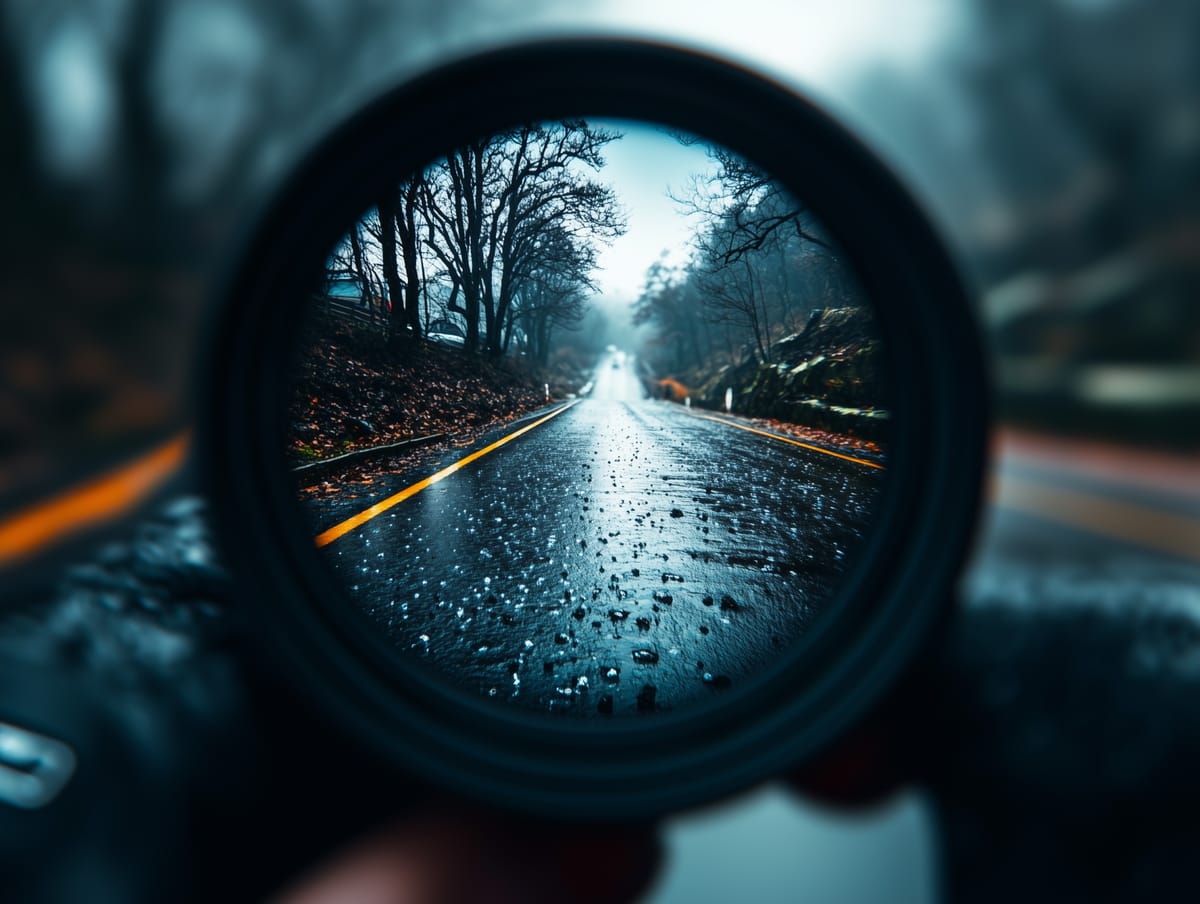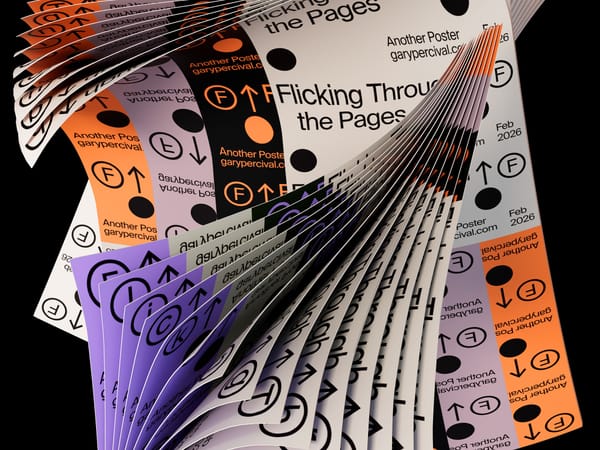The Truth About Big Decisions: You Learn After You Choose
“You don’t learn, then decide. You decide, then learn.”

Big decisions feel like heavyweights pressing down on you.
Should you take that job? Move to a new city? Raise your rates? Invest in new software?
As creatives, designers, and freelancers, we often believe we need to know everything before making a big choice. We research, analyse, seek advice, and try to predict every possible outcome. But here’s the truth: You won’t truly know if a decision is right until after you make it.
That’s because decision-making is less about having all the answers beforehand and more about committing to a path and learning from it. The real insights, the ones that shape your career and creative journey, come after you take the leap—not before.
The Fear of Making the “Wrong” Decision
Fear of failure keeps many people stuck.
The idea of making the “wrong” choice feels paralysing as if a single misstep could derail an entire career. But in reality, most choices are flexible—you can pivot, refine, and correct course along the way.
Think of your career as an ongoing design project. You don’t expect your first draft to be perfect, so why hold yourself to that standard when making big decisions? In design, we iterate, test ideas, and refine them based on feedback. The same logic applies to life and business.
Even when things don’t go as planned, they often provide unexpected benefits. A designer who quits their job to freelance and struggles initially may develop invaluable skills in marketing, networking, and resilience—skills that serve them well in future opportunities.
The Illusion of Perfect Knowledge
When faced with a major decision, we crave certainty.
We think:
- “If I knew this would succeed, I’d do it.”
- “I need to be 100% sure before I commit.”
- “What if this turns out to be a mistake?”
But perfect knowledge doesn’t exist. No amount of planning, forecasting, or advice will give you a clear-cut answer because every choice unfolds in unpredictable ways.
Take a freelancer debating whether to go full-time or keep their day job. They can read articles, ask mentors, and crunch numbers, but they won’t know what freelancing is really like until they do it. There are too many unknowns—how they’ll handle inconsistent income, how they’ll market themselves, how they’ll feel about the autonomy.
The same applies to raising your rates. You can theorise about how clients will react, but you’ll only learn how it plays out by actually sending that email.
Action is the Only Way to Gain Clarity
In design, we often say, “You don’t really know if something works until you test it.” The same applies to life and career decisions.
You act, you observe the results, and you adjust.
This is why small experiments and reversible choices are so valuable. Instead of endlessly debating whether to rebrand your freelance business, try changing your portfolio messaging for three months and see what happens. Instead of agonising over whether to move cities, visit for an extended stay first.
Big decisions often aren’t as permanent as we think.
Even if you make what feels like the “wrong” choice, you’ll gain insight that guides your next move. The worst-case scenario is rarely as bad as we imagine.
Learning in Motion vs. Learning in Theory
Think about riding a bike. You can watch videos, read about balance, and analyse the mechanics all you want—but until you get on the bike and wobble forward, you don’t really know what it feels like.
The same applies to freelancing, creative projects, and career shifts. There’s only so much you can learn in theory.
When you’re too focused on making the “right” choice, you risk getting stuck in analysis paralysis—a cycle of overthinking that prevents action. It feels like progress because you’re “researching,” but in reality, you’re delaying learning.
Regret Comes More from Inaction Than “Wrong” Choices
Studies show that people regret not taking action more than they regret making so-called “wrong” choices. That’s because even if a decision doesn’t go as planned, it leads to new opportunities and knowledge.
A freelancer who turns down a corporate job may wonder, “What if I had taken it?” But if they build a successful career, they won’t regret choosing freedom. Conversely, if they take the corporate job and find it stifling, they’ll learn that stability isn’t what they value most—and they can pivot back to freelancing.
The only true “wrong” decision is staying in limbo forever.
The Role of Intuition in Big Decisions
We often underestimate the role of intuition in decision-making.
Logic and research are valuable, but sometimes, your gut already knows the answer.
Think back to times when you made a decision that felt right—even if it was scary. Perhaps you took on a freelance project that stretched your abilities or turned down an opportunity that didn’t align with your vision. These choices might not have been easy, but in hindsight, they often make sense.
Intuition isn’t about guessing—it’s about recognising patterns from past experiences. If something feels right (or wrong), pay attention. It might be your subconscious processing information that logic alone hasn’t fully articulated yet.
Making Peace with Uncertainty
One of the best skills a creative can develop is comfort with uncertainty. Instead of waiting for a perfect roadmap, you build confidence in your ability to adapt.
Here are three mindset shifts that help:
1. Shift from “right or wrong” to “What can I learn?”
Instead of thinking, “What if this fails?” ask, “What will I learn from this experience?”
2. Trust your ability to handle the outcome.
Most decisions are not life-or-death. If a client deal goes south, you’ll find another. If you rebrand and it doesn’t work, you’ll refine it. You can handle more than you think.
3. Look for the next step, not the whole staircase.
You don’t need a five-year plan. You need the next step. Choose something, move forward, and adjust based on what you learn.
The Truth: You Decide, Then You Learn
At some point, you have to stop gathering information and make the choice. Not because you know everything, but because the only way to truly know is to experience it.
You don’t learn, then decide. You decide, then learn.
That doesn’t mean being reckless—it means recognising that clarity comes from engagement, not hesitation.
So if you’re facing a big decision—whether it’s launching your own design studio, changing career paths, or trying a bold creative direction—know this: the answers you’re looking for will only appear after you start moving.
Take the step. The learning will follow.



